Sri Lanka is a land of vibrant traditions, diverse cultures, and deep-rooted religious beliefs, all of which are reflected in the country’s many festivals and celebrations. These festivals, which span the Buddhist, Hindu, Christian, and Muslim faiths, offer a window into Sri Lanka’s rich cultural heritage. Each festival is marked by colorful processions, religious rituals, and communal celebrations, making them a great way to experience the country’s lively spirit. This guide highlights the key cultural festivals in Sri Lanka, providing insights into their significance and tips on when and where to experience them.
Major Festivals in Sri Lanka
1. Sinhala and Tamil New Year (Aluth Avurudu)
When: April 13–14
Where: Nationwide
Significance: Marks the beginning of the traditional new year for both Sinhalese Buddhists and Tamil Hindus, coinciding with the end of the harvest season.
Overview:
One of the most significant festivals in Sri Lanka, the Sinhala and Tamil New Year, also known as Aluth Avurudu, is a joyous celebration of new beginnings, family, and community. This two-day event marks the transition from the old year to the new and is celebrated with traditional rituals, games, and feasting.
Key Traditions:
- Astrological Timings: Rituals are conducted according to precise timings, including the lighting of the hearth and the preparation of the first meal.
- Games and Festivities: Traditional games like kotta pora (pillow fighting), tug-of-war, and climbing the greased pole are popular during the celebrations.
- Family Gatherings: Families reunite to prepare festive dishes like Kiribati (milk rice), sweets, and exchange gifts.
Best Places to Experience It: Rural villages for a more authentic celebration, or Colombo for larger public events.
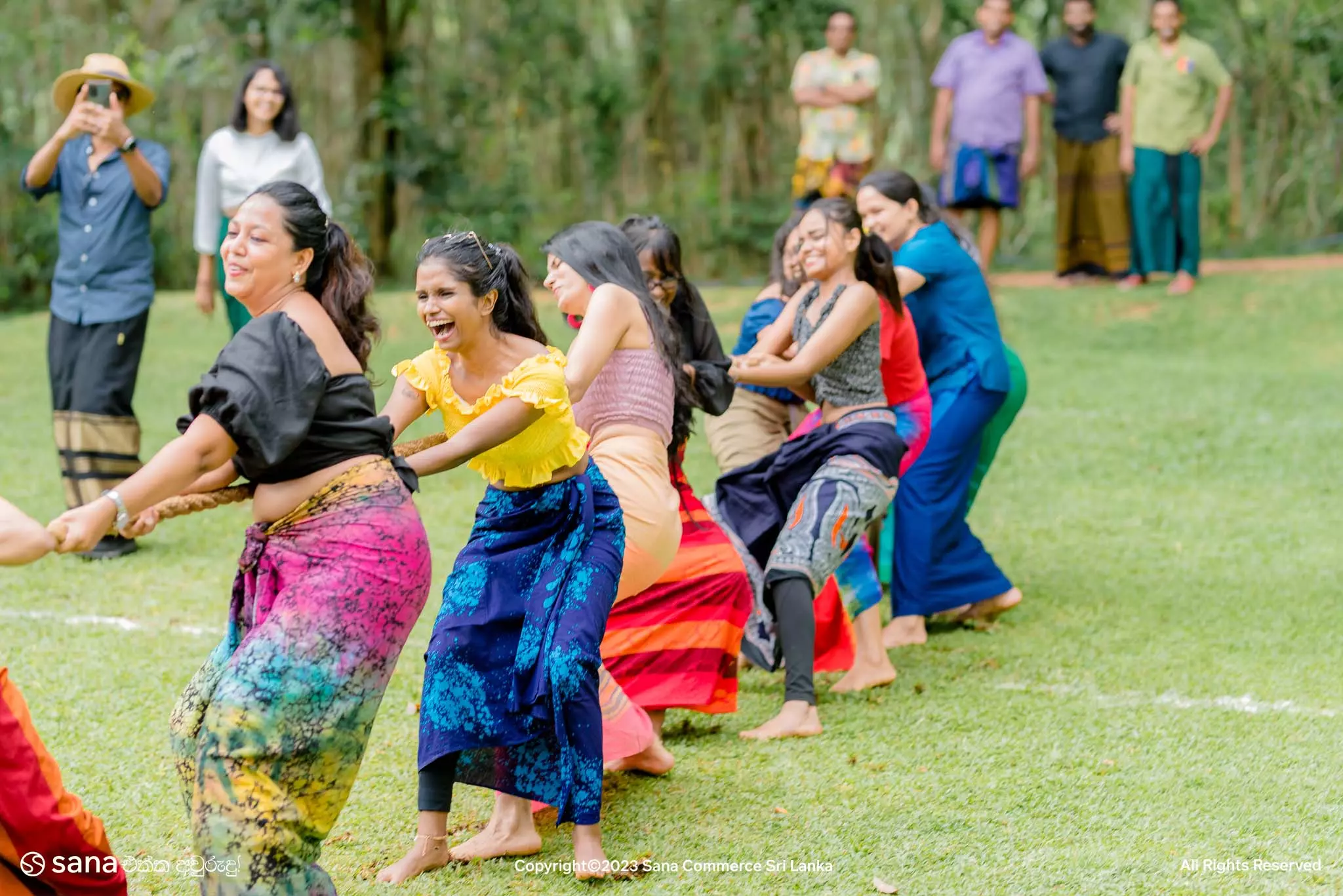
2. Vesak Festival
When: Full moon in May
Where: Nationwide, with major celebrations in Colombo, Kandy, and Anuradhapura
Significance: Celebrates the birth, enlightenment, and death of the Buddha.
Overview:
Vesak is the most important Buddhist festival in Sri Lanka, and the country comes alive with spectacular displays of lights, lanterns, and illuminated decorations. Temples hold special ceremonies, while streets are filled with Vesak zones featuring colorful pandals (storyboards depicting scenes from the Buddha’s life).
Key Traditions:
- Vesak Lanterns: People decorate their homes and streets with beautifully crafted paper lanterns, symbolizing the light of enlightenment.
- Pandals: Elaborate illuminated displays are set up in towns and cities, telling stories from the Buddha’s life.
- Dansalas: Free food stalls are set up to distribute meals and drinks to the public as acts of generosity.
Best Places to Experience It: Colombo, Kandy, and Anuradhapura for the grandest Vesak displays and processions.
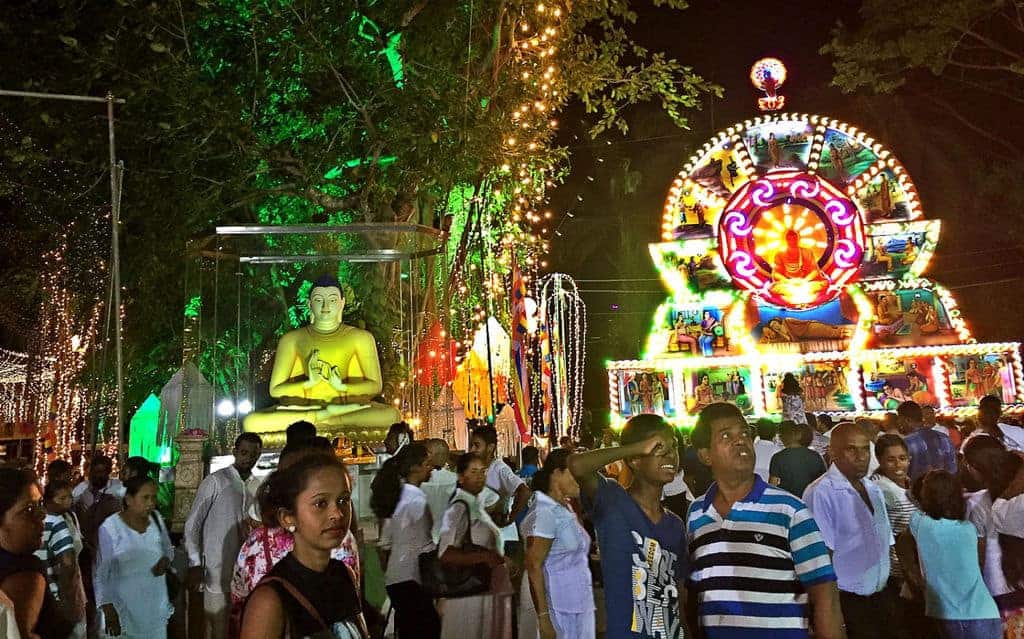
3. Kandy Esala Perahera
When: July/August (depends on the lunar calendar)
Where: Kandy
Significance: Honoring the Sacred Tooth Relic of the Buddha, held at the Temple of the Tooth.
Overview:
The Kandy Esala Perahera is one of the grandest and most visually stunning festivals in Sri Lanka. The highlight of the festival is the grand procession (Perahera), which includes lavishly decorated elephants, traditional dancers, fire jugglers, drummers, and musicians. The festival lasts for ten days, culminating in a grand final procession.
Key Traditions:
- Sacred Tooth Relic: The tooth relic of the Buddha, housed at the Temple of the Sacred Tooth Relic, is paraded through the streets in a golden casket.
- Elephant Parade: The most magnificent elephant in the procession, known as the Maligawa Tusker, carries the golden casket.
- Traditional Dancers and Drummers: Kandyan dancers perform ancient dances, while drummers keep the rhythm of the procession.
Best Place to Experience It: Kandy, especially around the Temple of the Sacred Tooth Relic. Book accommodations well in advance.
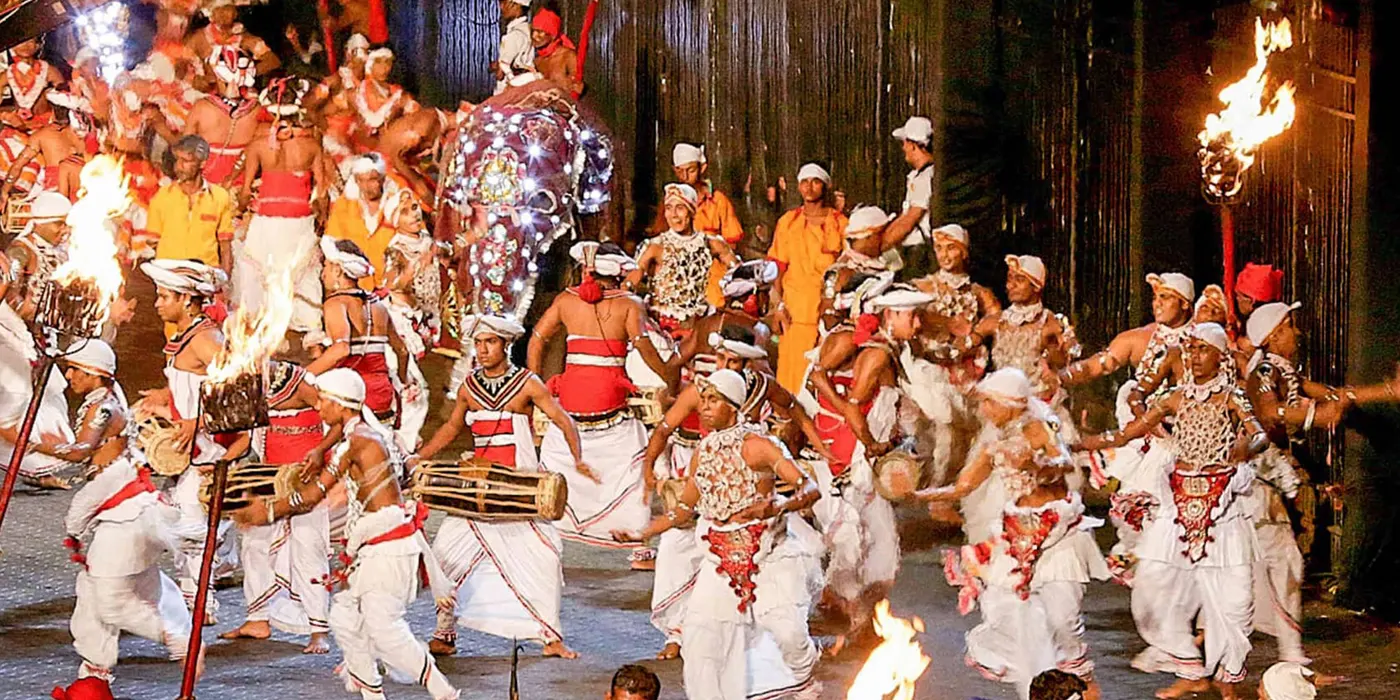
4. Poson Festival
When: Full moon in June
Where: Mihintale and Anuradhapura
Significance: Commemorates the introduction of Buddhism to Sri Lanka by Arahat Mahinda in the 3rd century BCE.
Overview:
Poson is the second-most important Buddhist festival after Vesak and celebrates the arrival of Buddhism in Sri Lanka. The festival is centered around Mihintale, the site where Arahat Mahinda converted King Devanampiya Tissa to Buddhism. Pilgrims flock to sacred sites to participate in religious rituals, prayers, and meditation.
Key Traditions:
- Pilgrimage to Mihintale: Thousands of devotees climb the 1,840 steps to the summit of Mihintale to offer prayers and reflect on the teachings of Buddhism.
- Dansalas: As with Vesak, there are free food stalls set up to serve the public as an act of charity.
Best Places to Experience It: Mihintale and Anuradhapura are the focal points of Poson celebrations.
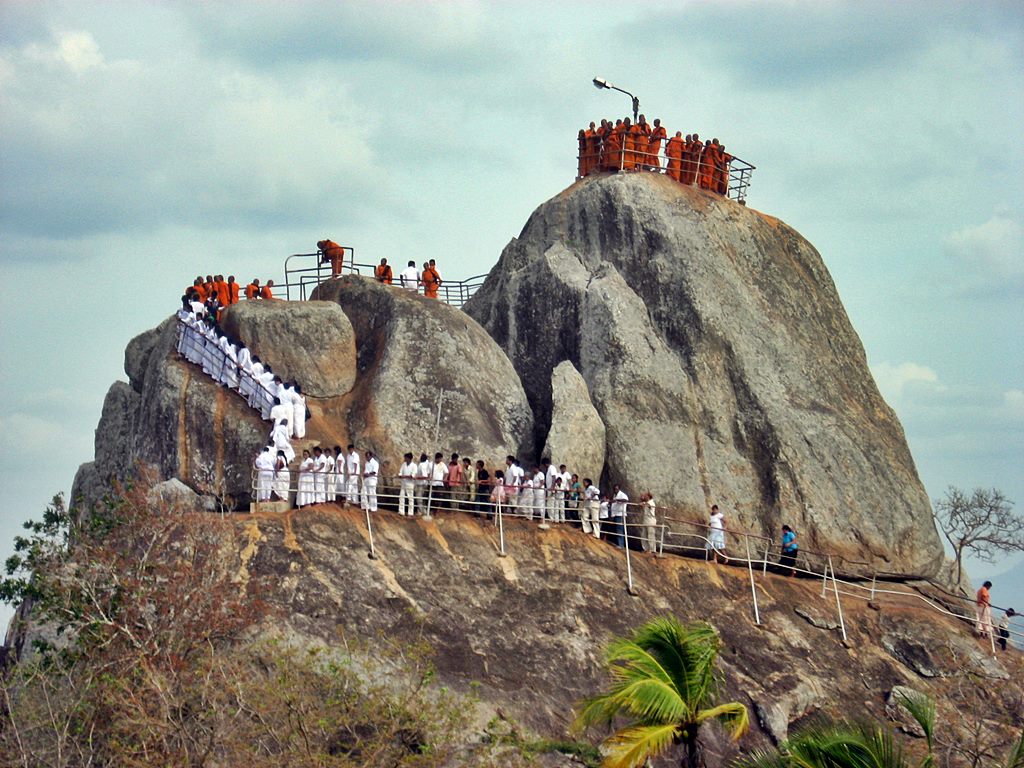
5. Deepavali (Diwali)
When: October/November (depending on the lunar calendar)
Where: Mainly in Hindu communities in the north and east, and in Colombo
Significance: Celebrates the victory of light over darkness and good over evil.
Overview:
Deepavali, also known as the Festival of Lights, is one of the most important Hindu festivals in Sri Lanka. Homes and temples are adorned with oil lamps, and fireworks light up the sky to symbolize the triumph of good over evil. The festival also includes family gatherings, feasts, and religious ceremonies.
Key Traditions:
- Oil Lamps: Families light oil lamps in their homes and outside temples to signify the victory of light over darkness.
- Fireworks: Fireworks and firecrackers are a common way to celebrate, with colorful displays filling the sky.
- Rangoli Art: Intricate rangoli patterns made of colored powders are created at the entrance of homes to welcome prosperity.
Best Places to Experience It: Jaffna, Batticaloa, and Hindu communities in Colombo.
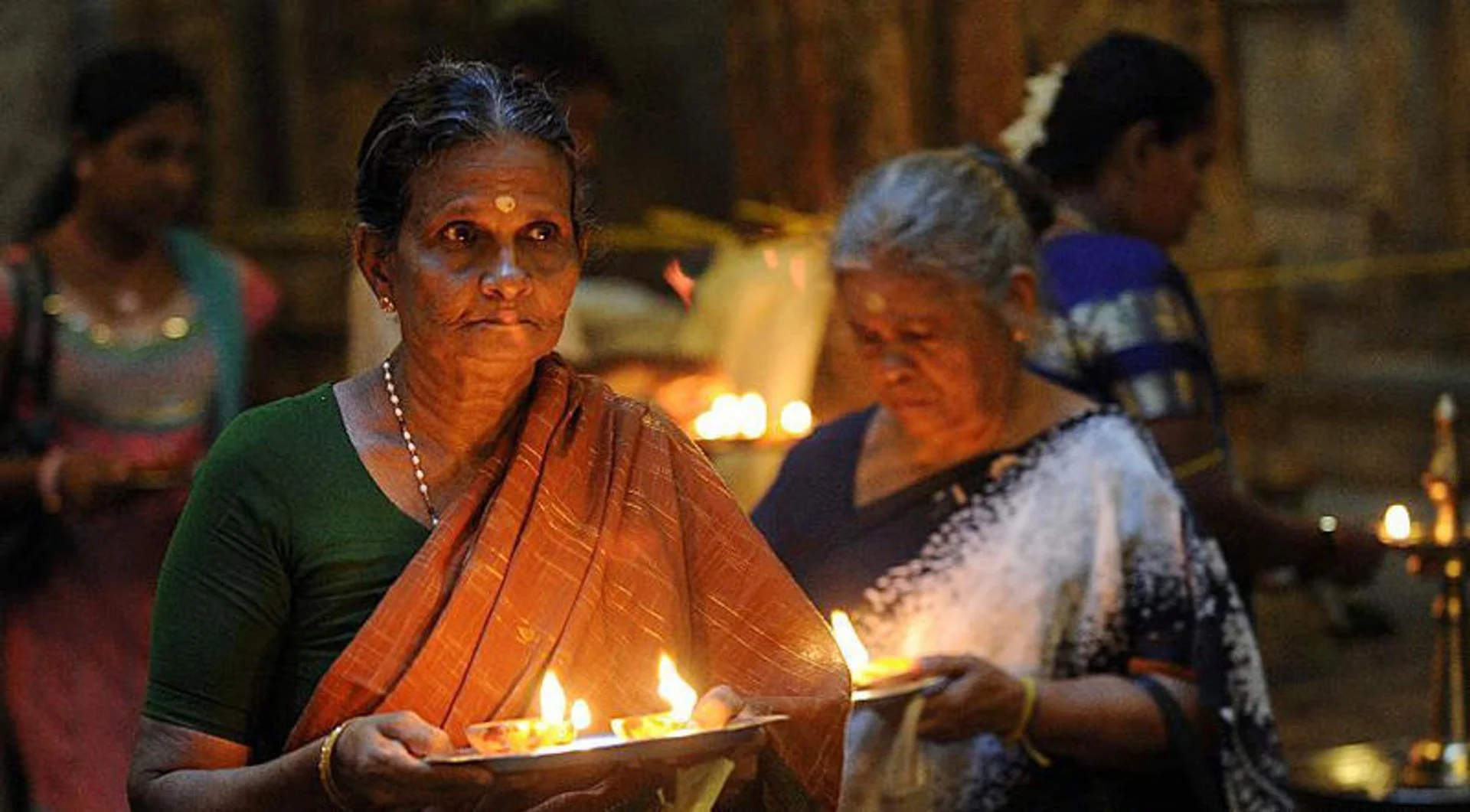
6. Vel Festival
When: July/August
Where: Colombo and Jaffna
Significance: Celebrates the Hindu god Skanda (Murugan), the god of war and victory.
Overview:
The Vel Festival is a colorful Hindu festival dedicated to Lord Murugan. In Colombo, the festival is marked by a grand procession in which the Vel (Murugan’s weapon, a spear) is paraded through the streets in a chariot. The streets come alive with vibrant music, drumming, and dancing as devotees make offerings and pray for blessings.
Key Traditions:
- Vel Procession: The Vel is placed on a silver or gold chariot and paraded through the streets, accompanied by devotees chanting and playing traditional music.
- Kavadi Dance: Devotees perform a ritualistic dance carrying Kavadis (burdens) as an act of devotion and penance.
- Offerings: Fruits, flowers, and incense are offered to Lord Murugan along the procession route.
Best Places to Experience It: Colombo’s Kataragama Kovil and the streets of Jaffna.
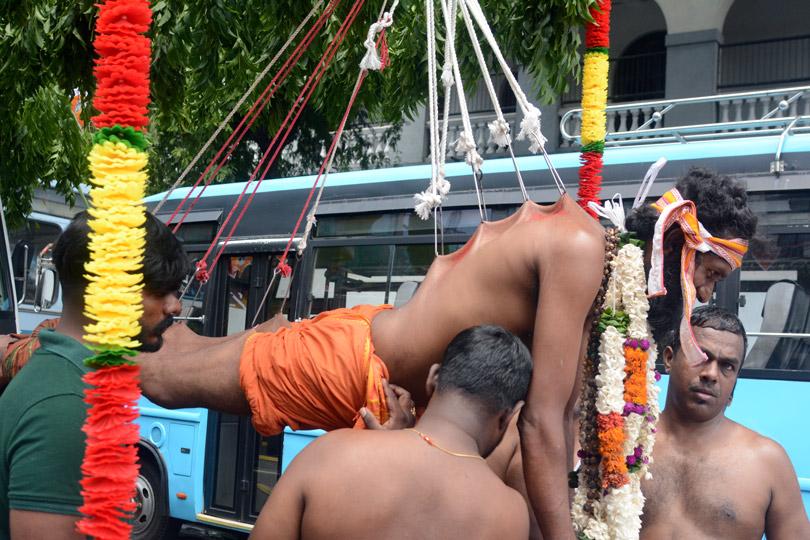
7. Christmas
When: December 25
Where: Nationwide, with a larger celebration in Colombo
Significance: Celebrates the birth of Jesus Christ, observed by the Christian community.
Overview:
Christmas in Sri Lanka is a festive occasion, celebrated by the Christian community as well as many non-Christians who enjoy the holiday’s cheerful atmosphere. Churches across the country hold midnight Mass, while homes, streets, and shopping malls are decorated with Christmas lights, trees, and nativity scenes.
Key Traditions:
- Midnight Mass: Many Christian families attend midnight Mass at churches to celebrate the birth of Christ.
- Christmas Feasts: Families gather to enjoy traditional Christmas meals, often featuring roast chicken, cake, and special Sri Lankan dishes like breeder (Dutch-style Christmas cake).
- Caroling: Groups of carolers sing traditional Christmas songs in churches and homes.
Best Places to Experience It: Colombo, Negombo, and the Christian communities of Jaffna and Batticaloa.
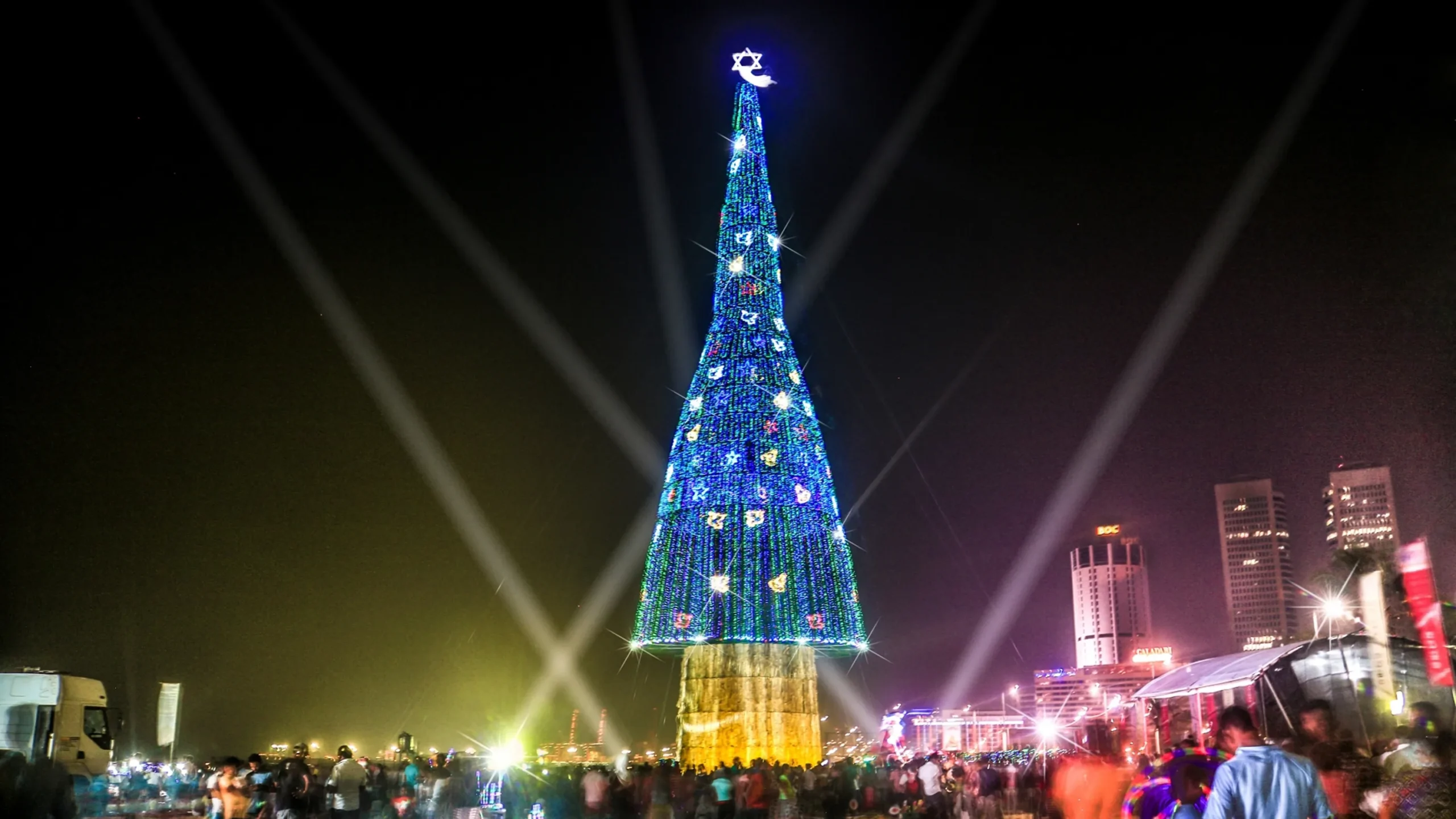
8. Maha Shivaratri
When: February/March (depends on the lunar calendar)
Where: Hindu communities across Sri Lanka
Significance: A Hindu festival dedicated to Lord Shiva, marking the night of his cosmic dance.
Overview:
Maha Shivaratri is one of the most important Hindu festivals in Sri Lanka, celebrated with great devotion to Lord Shiva. The festival is observed with fasting, prayers, and meditation. Devotees visit temples and perform rituals, staying up all night in honor of Lord Shiva.
Key Traditions:
- Nightlong Vigils: Devotees observe fasts and stay awake through the night, praying and chanting mantras in Shiva’s honor.
- Ritual Baths: Devotees bathe Shiva lingams (symbolic representations of Lord Shiva) with water, milk, honey, and flowers.
- Offerings: Flowers, fruits, and incense are offered to Shiva in temples.
Best Places to Experience It: Temples in Trincomalee, particularly Koneswaram Temple, as well as Colombo and Jaffna.
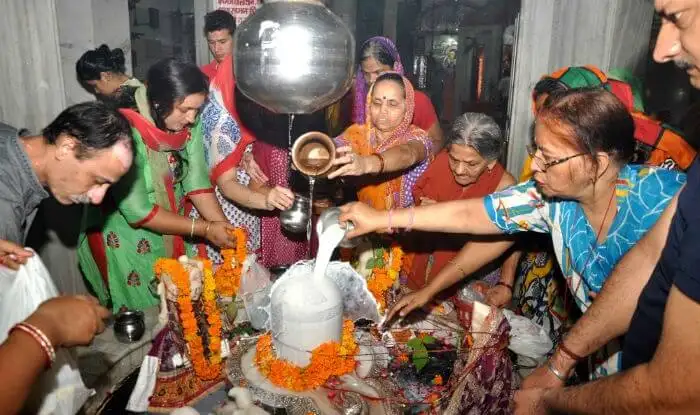
Conclusion
Sri Lanka’s rich tapestry of cultural festivals offers a unique opportunity to experience the island’s diversity, traditions, and spirituality. From the colorful processions of Kandy Esala Perahera to the peaceful rituals of Poson, every festival provides a glimpse into the country’s vibrant heritage. Whether you’re drawn to the lights of Vesak or the joy of the Sinhala and Tamil New Year, visiting Sri Lanka during one of its many festivals is sure to leave a lasting impression.
Final Tips:
- Plan: Festivals can draw large crowds, so plan your accommodations and transportation, especially for popular events like Kandy Esala Perahera and Vesak.
- Respect Local Customs: Dress modestly when attending religious festivals and ceremonies, and be mindful of local customs and traditions.
- Participate: Many festivals encourage public participation, so don’t hesitate to join in the celebrations and experience Sri Lanka’s festive spirit firsthand!
Enjoy the vibrant festivals of Sri Lanka and immerse yourself in the country’s cultural richness all year round!
